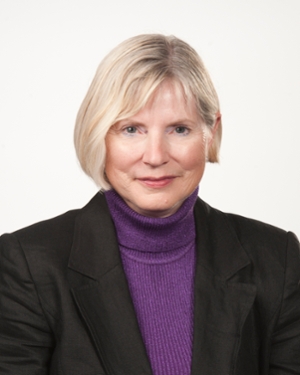
Ramsden recognized as family medicine research pioneer
Dr. Vivian Ramsden has been recognized by the College of Family Physicians of Canada as one the Top 20 Pioneers in Family Medicine Research in the country.
By Marg SheridanFrom India to Sturgeon Lake, Dr. Vivian Ramsden has been on the leading edge of participatory health research.
A Professor in the Department of Academic Family Medicine, Ramsden was recently recognized by the College of Family Physicians of Canada as one the Top 20 Pioneers in Family Medicine Research in Canada for her work in helping to improve healthcare in underserved communities.
“Participatory research is all about engagement,” explained Ramsden. “It’s about engaging the community in meaningful research. So they co-create it, (and) we actually answer their questions together with the results going back to the community, and programs evolve from the results of the questions they’ve systematically asked and answered.
“So it’s sort of like the transformative action research model - everybody is engaged.”
A Registered Nurse by training, Ramsden also holds a Masters in Community Administration and Wellness Promotion and a PhD in Interdisciplinary Studies (Primary Healthcare and Curriculum Studies). Her work has mainly focused on underserved communities: inner-city, Indigenous communities in Saskatchewan, incarcerated women, and rural communities in south India.
“It’s about social responsibility and social accountability in that sense,” she continued. “But it’s also about all of the healthcare providers who don’t necessarily have a voice – so it’s how to actually gain a voice in new ways. It’s non-linear, it’s iterative, and it’s engaging on their terms, not mine.”
Ramsden explained that being a participatory researcher means spending at least 12 months in a community just being a part of the community – not asking questions, but sitting down for coffee and having chats before you even start to ask them if there’s a question they’re interested in systematically answering.
An example of this is the research Ramsden is currently doing with Sturgeon Lake First Nation to identify opportunities for improving health services and the overall health and wellness of the community with the community. While they face problems with internet connectivity in the community, there is an incredible amount of community participation with the project.
“We’ve just finished a community survey there,” said Ramsden. “We had a 97 per cent participation rate – so 230 out of 238 homes were engaged in responding to the questions with the goal of developing community programs with the community.”
Her work in Sturgeon Lake also carries over to the community programs Ramsden has helped to facilitate in India.
“There are a lot of similarities between the communities,” Ramsden explained. “They’ve actually set up a Community Health Worker program which is similar to the Community Health Representative program at Sturgeon Lake First Nation. Community members are invited to participate, trained and engaged in measuring heights and weights, etc. supported by the Faculty at Omayal Achi College of Nursing in Chennai.
“And then on the other hand some of the things we’ve learned in India we’ve actually implemented in Sturgeon Lake – so it’s been a global opportunity.”
Ramsden was invited to work in India 20 years ago to help set up an ICU in a Community Hospital and teach CPR to all of the nursing students; as well as, to support the development of both a Master and PhD program – which now boasts 254 Masters’ students and 18 PhD students – she’s done exactly what she set out to accomplish.
Her award as a Pioneer of Family Medicine Research in Canada was a part of the 20th anniversary of the CFPC’s Sections of Researchers who ‘advocate for, and support, family medicine research in Canada’ according to the Section of Researcher’s Chair, Dr. Wendy Norman.
“The recognition was a gift – it was both humbling and an honour to stand with my colleagues from across the country,” Ramsden admitted regarding her nomination, before reinforcing that in the long-run, it’s all about continuing to be engaged in research. “My work will go on at the community level where I facilitate answering their questions - when you’re engaged in the community, it’s the community that drives the research.”
